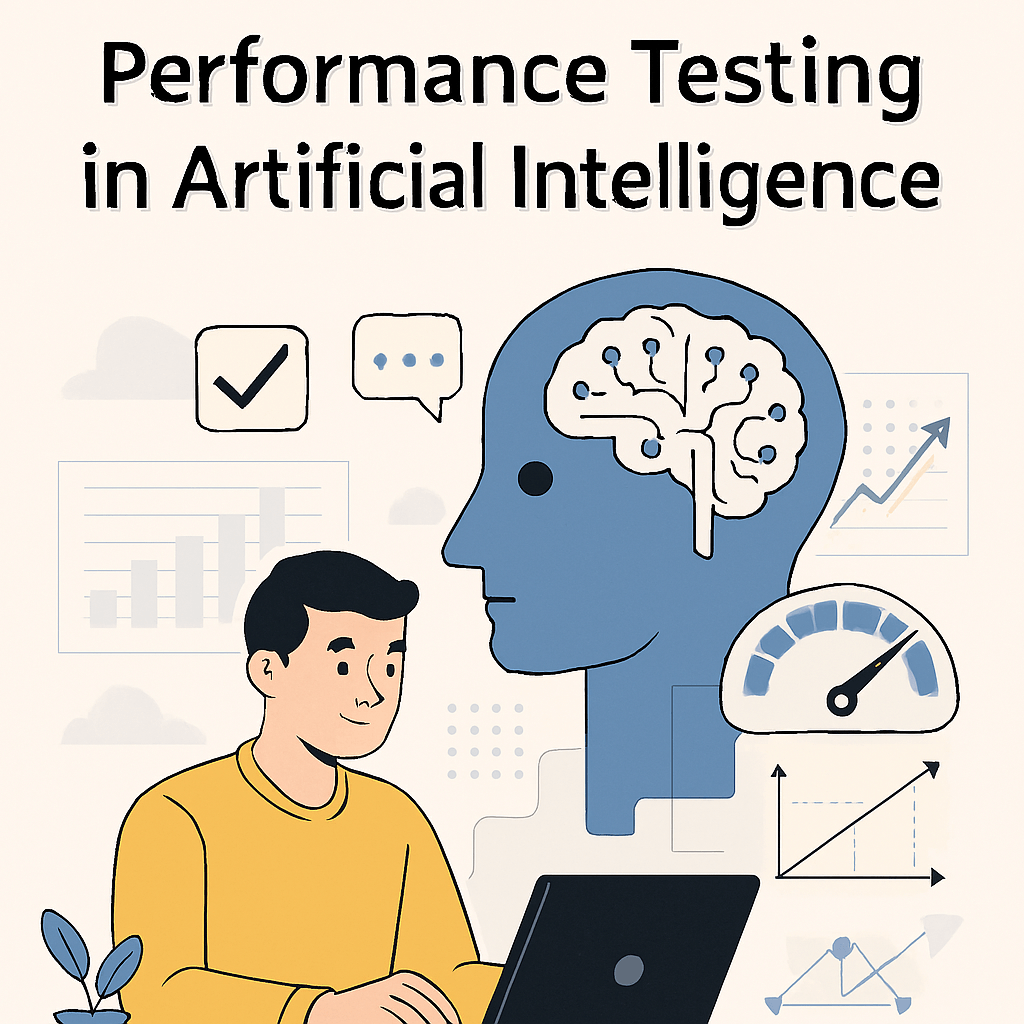
The Importance of Performance Testing in Artificial Intelligence is becoming more evident as AI systems are now part of everyday life. From voice assistants on our phones to recommendation engines on shopping sites, AI powers decisions that impact millions of people. However, building an AI system that only works correctly is not enough. It must also perform efficiently under different conditions. Imagine asking your voice assistant a question and waiting 10 seconds for a reply. Technically, it worked, but in practice, it failed. This is where performance testing plays a crucial role.
Performance Testing for an AI model
Performance testing is the process of checking how fast, stable, and scalable a system is under different loads and stress levels. In the world of AI, performance testing goes beyond checking whether a model predicts correctly. It asks: Can the model respond in time? Can the system handle multiple users at once? Can it scale up when millions of requests arrive?
Example
Think of performance testing in AI like testing a car. A car may look beautiful and have a powerful engine, but if it cannot run smoothly on highways, climb hills, or handle traffic jams, it is not truly reliable. Similarly, an AI system may be accurate in the lab but slow or unstable in real-world conditions.
Key areas where performance testing matters in AI
- Response time: AI applications like chatbots, self-driving cars, and fraud detection systems must deliver quick responses. Even a few seconds of delay can cause frustration or even danger.
- Scalability: AI systems often serve thousands or millions of users at once. Performance testing checks if the system can handle a growing number of requests without breaking down.
- Resource usage: AI models can be heavy on memory and processing power. Performance testing ensures that resources are used efficiently so that costs remain manageable.
- Reliability: AI must not only perform fast but also stay consistent under continuous use. For example, a healthcare AI system analyzing scans cannot afford to slow down after processing thousands of images.
A relatable example can be found in video streaming platforms. Suppose a recommendation system suggests movies to millions of viewers. If the system is not performance tested, recommendations might arrive slowly, or worse, the platform might crash during peak hours. In this case, performance testing ensures a smooth and enjoyable user experience.
Another analogy is preparing for an exam. Knowing the correct answers is important, but if you cannot finish within the time limit, your knowledge alone will not help. Similarly, AI accuracy is valuable only when it is combined with speed and stability.
Conclusion
Performance testing in artificial intelligence ensures that systems are not only intelligent but also fast, reliable, and scalable in real-world conditions. As AI continues to influence critical areas like healthcare, finance, and transportation, the role of performance testing will only grow, and many professionals strengthen their foundations through an artificial intelligence certificate program.
To think further: Imagine you are designing an AI-powered assistant for students. How would you test whether it can handle thousands of queries during exam season without slowing down?